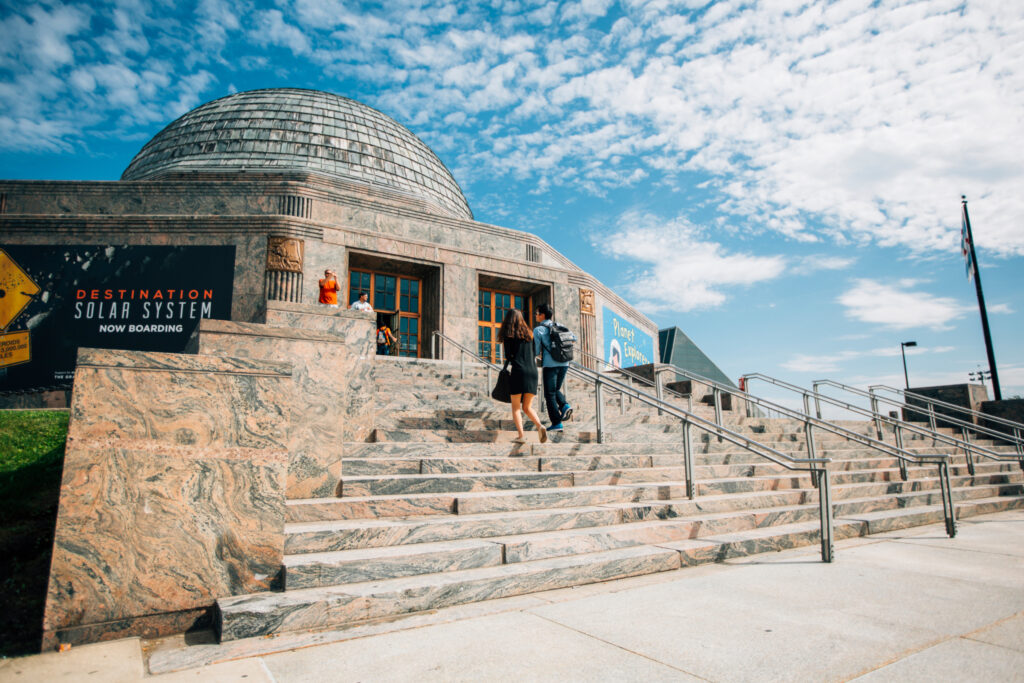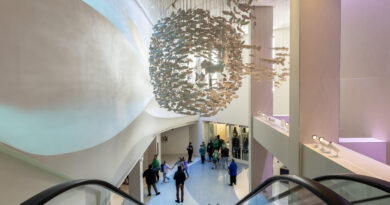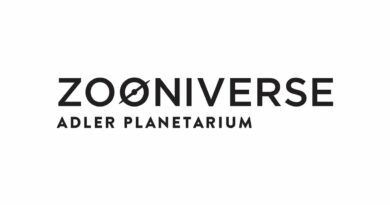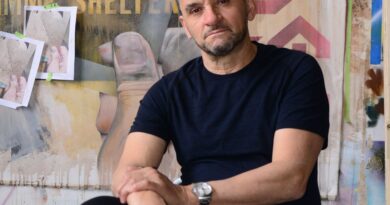Adler Planetarium Employs Idle Museum Equipment and People Power to Aid in Fight Against COVID-19
During its closure, the Adler Planetarium is doing their part to help the people of our planet during this unprecedented crisis. From utilizing equipment that now sits idle for scientific research and PPE production, to pushing a message about the importance of social distancing out to our community, the Adler staff and volunteer team have been busy working together against COVID-19.
The Adler has joined other planetariums across the country in contributing to global scientific research efforts to fight COVID-19 by providing their powerful sky show rendering computer servers for use in the critical Rosetta@home (R@h) project from the University of Washington. The R@h project is seeking to model important COVID-19 proteins and predict their three-dimensional shapes. Knowledge gained from studying these viral proteins is now being used to guide the design of novel vaccines and antiviral drugs.
“During our closure to the public, we’ve been using our capabilities in many ways to help our community like leveraging our planetarium computing resources to help scientists more quickly understand and design tools to neutralize COVID-19; work that will hopefully lead to a vaccine,” said Chris Comerford, Vice President for Enterprise Strategy and Solutions at the Adler Planetarium.
R@h is run through the Berkeley Open Infrastructure for Network Computing (BOINC) platform by the University of California, Berkeley, with support from the National Science Foundation. BOINC is a volunteer, crowdsourced computing platform that downloads scientific computing jobs to remote computers and runs programs in an effort to advance important research.
The Adler Planetarium Far Horizons team works with teens from across Chicagoland in hands-on scientific research. Normally, their three dimensional printers are used to create prototypes that help teens study light pollution, find meteorites at the bottom of the lake and more. In this unprecedented time, Adler Planetarium has converted the use of those printers to make face masks for members of some of the hardest hit communities on the south and west sides of Chicago.
“The philosophy of the Far Horizons program at the Adler Planetarium is to have students and volunteers learn and engage in science and engineering by doing. We’ve used our tools and expertise to explore from the edge of space to the depths of Lake Michigan. Now there is a need and opportunity to bring our engineering skills down to Earth,” said Ken Walczak, Senior Manager of Far Horizons. “We heard the call from Chicago Peace Fellow Jacquelyn Moore that hospitals and first responders on the south and west sides of Chicago had a great need for protective equipment to deal with the COVID 19 emergency in their neighborhoods. We coordinated our network of volunteers to 3D print protective masks to deliver to the cause. Along with a couple of 3D printers from the Adler, we should be producing and delivering about 40 masks a day.”
These critical efforts are currently underway as the Adler helps to flatten the curve of the novel COVID-19 virus by recognizing the critical importance of self-quarantine and social distancing. In conjunction with City of Chicago Mayor Lightfoot’s office, Adler Planetarium created Give Chicago Some Space, a #stayhomesavelives video PSA, which has been shared out on the planetarium’s social media channels urging Chicagoans to stay home, noting Chicago needs a little (at least six feet) space right now.




